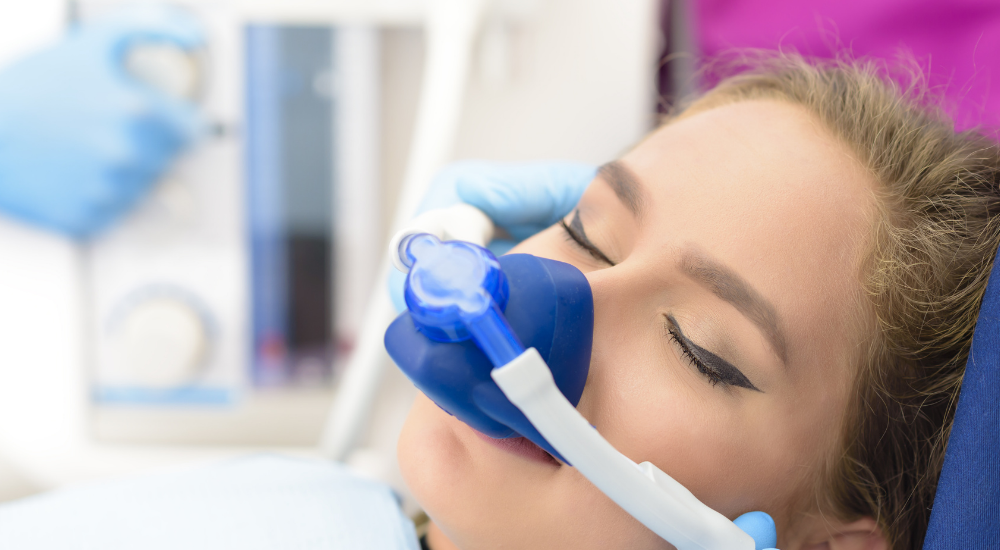Posted by Stonegate Family Dentistry on Mar 27 2020, 08:17 AM

According to the Centers for Disease Control, social distancing is one of the most important parts of fighting the spread of COVID-19. While we’re sheltering in place, it’s important to continue good personal healthcare practices, including oral hygiene.
The COVID-19 pandemic is keeping the majority of us at home until further notice. Quarantine and social distancing are forcing many people to cancel their routine health check-ups, including their annual dental examinations.
Fortunately, there are ways to take extra good care of your teeth while you’re stuck at home during shelter-in-place orders. Call us to learn more.
Tartar, also known as dental calculus, is the hardened form of plaque that forms on the teeth when plaque accumulates and mineralizes over time. While plaque is a sticky film of bacteria that can be removed with regular brushing and flossing, tartar is much harder and cannot be removed by brushing alone. Tartar buildup can lead to various oral health problems and is considered bad for several reasons:
1. Increased Risk of Gum Disease:Tartar buildup along the gumline can irritate and inflame the gums, leading to a condition known as gingivitis. If left untreated, gingivitis can progress to more severe forms of gum disease, such as periodontitis, which can cause gum recession, bone loss, and eventually tooth loss.
2. Tooth Decay:Tartar provides an ideal environment for bacteria to thrive and multiply. These bacteria produce acids that can erode tooth enamel and lead to tooth decay (cavities). Tartar buildup can also trap food particles and plaque against the teeth, increasing the risk of decay in those areas.
3. Bad Breath:Tartar harbors bacteria that produce foul-smelling gases as they metabolize food particles and other substances in the mouth. This can contribute to persistent bad breath (halitosis) that may not be adequately addressed with regular brushing and mouthwash.
4. Discoloration and Staining: Tartar is porous and can absorb pigments from food and drinks, causing unsightly yellow or brown stains on the teeth. These stains can be difficult to remove with brushing alone and may require professional dental cleaning to restore the teeth' natural color.
5. Difficulty Cleaning Teeth:Tartar buildup creates rough, irregular surfaces on the teeth where plaque and bacteria can adhere more easily. This makes it harder to clean the teeth effectively with brushing and flossing, increasing the likelihood of oral health problems and the need for professional intervention to remove tartar deposits.
6. Receding Gums and Tooth Sensitivity:As tartar accumulates along the gumline, it can push the gums away from the teeth, leading to gum recession. Exposed tooth roots are more susceptible to decay and tooth sensitivity, particularly to hot, cold, sweet, or acidic foods and beverages.
Overall, as per the team at Stonegate Family Dentistry, tartar buildup poses a significant risk to oral health and can contribute to gum disease, tooth decay, bad breath, staining, and tooth sensitivity. To prevent tartar formation and maintain good oral health, it's essential to practice proper oral hygiene habits, including brushing your teeth twice a day, flossing daily, and scheduling regular dental cleanings with your dentist in 37129 or dental hygienist.
Plaque and tartar production in the mouth are accelerated by certain foods, namely sugars and carbohydrates.
Soda, fruit juices, candy, and even some fruits coat the teeth in sugar. If you don’t brush your teeth thoroughly after eating these foods, you leave a sugar paste on your teeth that will inevitably turn into plaque. Brushing thoroughly will control plaque buildup and prevent tartar formation.
Water helps lubricate the mouth, fights bad breath, and prevents the buildup of plaque by washing sugars off the teeth after eating.
If you aren’t drinking enough water, you may be allowing excess plaque to form on your teeth.
Aim to drink at least a few ounces of water every time you eat. This will help control the amount of food left on the teeth after eating.
It’s important to maintain excellent dental hygiene standards, especially during the coronavirus outbreak. This is because many dentist in Murfreesboro TN and dental offices are only seeing patients on an emergency basis. Many of us will have to wait to get a dental exam and cleaning until the pandemic is over.
Contact Dentist in Murfreesboro TNat Stonegate Family Dentistry to schedule your appointment!

According to the Centers for Disease Control, social distancing is one of the most important parts of fighting …

According to the Centers for Disease Control, social distancing is one of the most important parts of fighting …

According to the Centers for Disease Control, social distancing is one of the most important parts of fighting …
MON - THU 8:30 am - 5:00 pm
FRI - SUN Closed
